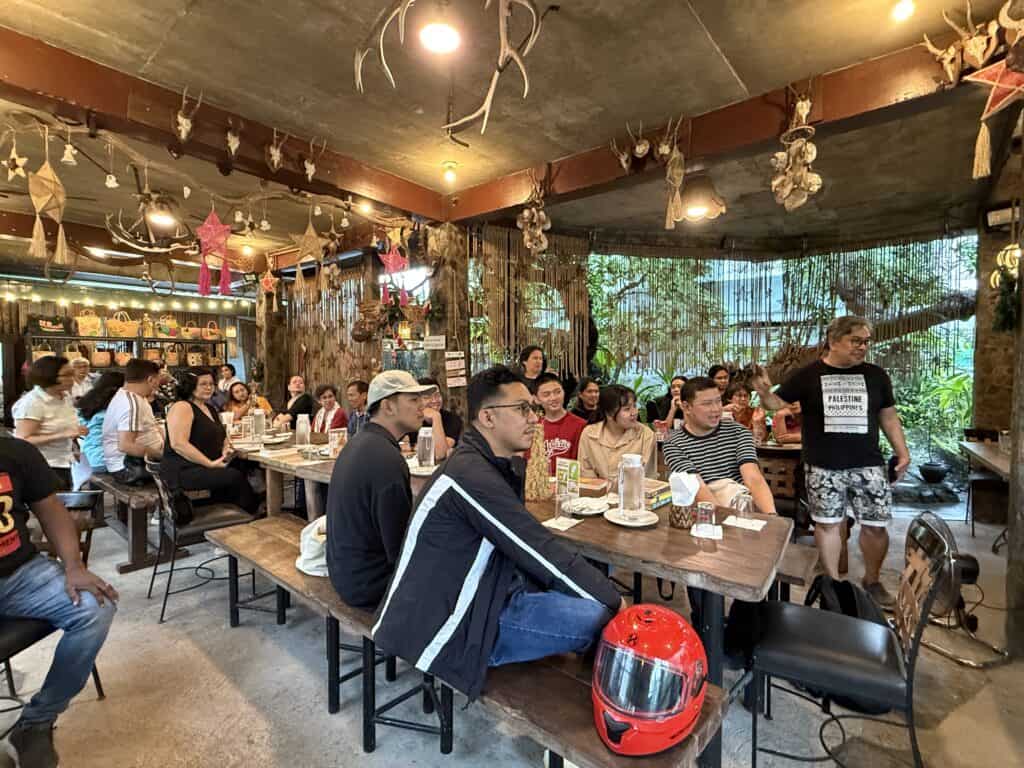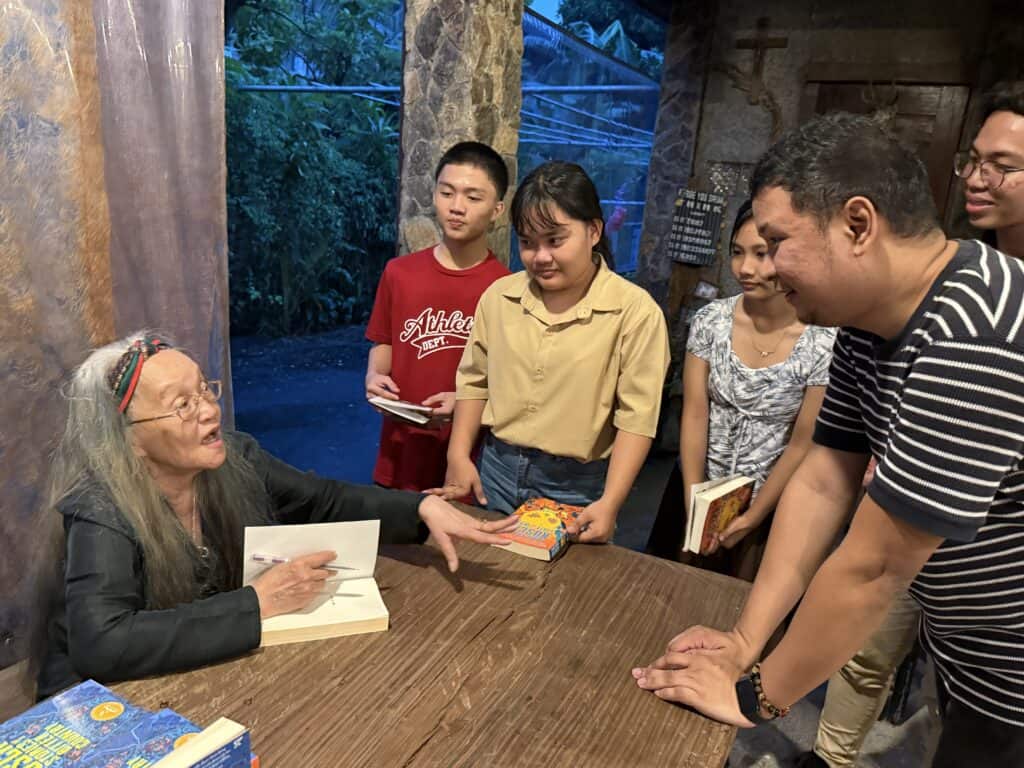In the heart of Café Molave and Souvenirs in Tabaco City, the air buzzed with an unusual energy. Ninotchka Rosca, the celebrated author and activist, had just held a talk titled, ‘Becoming a Warrior Woman.’
The intimate setting belied the weight of her words, which resonated far beyond the café walls, touching on themes of gender, power, and the urgency of reclaiming spaces in a world dominated by patriarchy and autocracy.
It wasn’t even a planned event, as Rosca herself revealed during the interview.
“It was by chance,” she said, describing how Victor Velasco of the Albay Arts Foundation suggested a book tour and signing during her visit in Bicol upon the invitation of Victor himself.
What unfolded was a whirlwind of activity—proof of Rosca’s unyielding commitment to reaching out and engaging with Filipinos, especially the youth.
A Binary Existence, A Singular Mission
Though based outside the Philippines, Rosca describes herself as “binary,” dividing her time between the country of her birth and the global stage she now occupies.
During a recent visit, she conducted nine lectures in just forty-five days, an impressive feat that highlights her dedication.
The response from the youth floored her. “I was totally shocked. Puno every single one,” she said, recalling packed auditoriums and lines of students eagerly waiting for her book signing.
This enthusiasm underscores the hunger for dialogue and learning among young Filipinos, especially in today’s politically charged climate.
The Feminine Contrast
Rosca’s talk in Tabaco tackled the nuanced contrast between masculine and feminine power.
Using the Philippines’ political figures as examples, she highlighted the steady resolve of Leni Robredo compared to the fiery volatility of Sara Duterte.
This contrast, she explained, offers a glimpse into the transformative potential of redefining leadership and power dynamics.
“The family is the bedrock of our society,” she said, urging listeners to scrutinize how patriarchal structures within families shape political realities.
“It is very important that we recognize the family not only as a basic social unit, but also a basic political group. This is where we learn the foundation: the power of the patriarch is absolute, and [if] the language of the family is violence, we end up with leaders who embody that violence.”
Despite the chaos of the current political paradigm, Rosca remains hopeful. “I’m very happy that we continue to have women who are strong without being violent, who are steady in their resolve.”
Women as Beacons of Change
In her message to young women and the broader youth audience, Rosca stressed the importance of rejecting restrictions.
“Women have a huge role in change. We must oppose any constriction of public space for women and being defined by those who would restrict those public spaces. We did not get here by accepting restrictions, did we?”
Rosca also shared a personal anecdote from her early days as a journalist when she was told, “No woman can be an editor.” Rosca’s defiance in the face of such blatant sexism became a defining moment in her career. “I refused to be told I couldn’t be someone,” she declared.
Even now, decades later, she acknowledges that the fight continues: “women’s rights are like a rubber band—it snaps back. You have to stretch it again and again until the restrictions are broken completely.”
Ninotchka Rosca’s words in Tabaco City weren’t just a reflection of her journey—they were a rallying cry.
In a world where women’s spaces are constantly challenged, her call to become warrior women serves as both inspiration and a challenge.
For Rosca, the battle is far from over, but with steadfast resolve and collective action, victory is within reach.
Her talk may have been unplanned, but its impact was anything but accidental.
It was a moment where history, advocacy, and inspiration converged—a reminder that in the fight for equality, every voice matters, and every action counts. I Ken Oliver Balde



